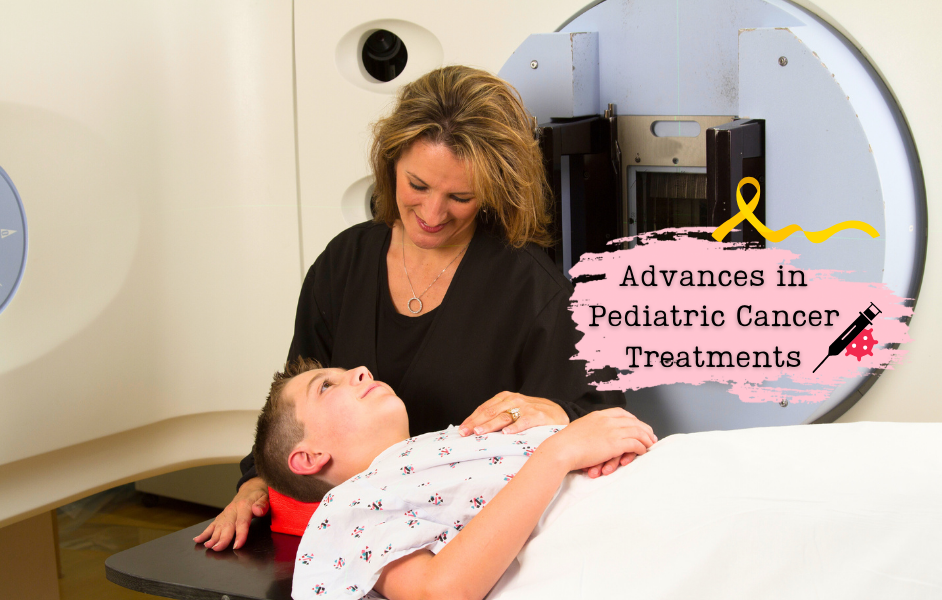BLOG
Advances in Pediatric Cancer Treatments: A Beacon of Hope for Young Lives

Pediatric cancer remains one of the most challenging health issues, affecting children and their families worldwide. However, recent advances in pediatric cancer treatments are providing new hope. Breakthroughs in medical research, innovative therapies, and personalized medicine are transforming the prognosis for many young patients. This blog delves into the latest advances in pediatric cancer treatments, highlighting their impact and future potential.
The Landscape of Pediatric Cancer
Cancer in children differs significantly from adult cancers in terms of types, progression, and response to treatment. The most common pediatric cancers include leukemia, brain tumors, lymphomas, and neuroblastomas. Early detection and effective treatment are crucial for improving survival rates and quality of life for young patients.
Immunotherapy: Harnessing the Power of the Immune System
One of the most promising advancements in pediatric cancer treatment is immunotherapy. This approach involves stimulating the patient’s immune system to recognize and attack cancer cells more effectively. CAR-T Cell Therapy is a notable example, where a patient’s T-cells are genetically modified to target cancer cells. In 2017, the FDA approved CAR-T therapy for treating pediatric acute lymphoblastic leukemia (ALL), a common childhood cancer. This therapy has shown remarkable success, with many patients achieving long-term remission.
Targeted Therapy: Precision Medicine at Work
Targeted therapies are designed to specifically attack cancer cells while sparing healthy tissue, reducing the side effects associated with traditional chemotherapy. These treatments focus on specific genetic mutations or abnormalities in cancer cells. For example, the drug Imatinib has revolutionized the treatment of chronic myeloid leukemia (CML) by targeting the BCR-ABL fusion protein, a hallmark of this cancer. Advances in genomic profiling enable doctors to tailor treatments based on the unique genetic makeup of each child’s cancer, significantly improving outcomes.
Proton Therapy: Precision Radiation Treatment
Radiation therapy has long been a cornerstone of cancer treatment, but its use in children is limited due to potential long-term side effects. Proton therapy offers a more precise form of radiation treatment, delivering high doses of radiation directly to the tumor while minimizing damage to surrounding healthy tissue. This precision is particularly beneficial for treating brain tumors and other cancers located near critical structures. Proton therapy reduces the risk of cognitive and developmental side effects, making it a valuable option for pediatric patients.
Advances in Chemotherapy
While chemotherapy remains a mainstay of cancer treatment, advances in drug delivery methods and combination therapies are enhancing its effectiveness and reducing toxicity. Liposomal formulations of chemotherapy drugs encapsulate the active agent in lipid particles, improving drug delivery to cancer cells and reducing side effects. Additionally, research into novel drug combinations is yielding more effective treatment protocols, particularly for resistant and recurrent cancers.
Stem Cell Transplantation: Rebuilding Healthy Blood Cells
Stem cell transplantation, also known as bone marrow transplantation, is a critical treatment for certain pediatric cancers, such as leukemia and lymphoma. This procedure involves replacing diseased or damaged bone marrow with healthy stem cells, which can regenerate healthy blood cells. Advances in matching techniques and supportive care have improved the safety and success rates of stem cell transplants, offering a potential cure for many young patients.
Liquid Biopsies: A Non-Invasive Diagnostic Tool
Early and accurate diagnosis is vital for successful cancer treatment. Liquid biopsies represent a groundbreaking diagnostic tool, allowing doctors to detect cancer-related genetic mutations from a simple blood sample. This non-invasive method can monitor treatment response, detect minimal residual disease, and identify early signs of relapse. Liquid biopsies are especially valuable for pediatric patients, reducing the need for invasive tissue biopsies and enabling more precise treatment adjustments.
Personalized Medicine: Tailoring Treatment to the Individual
Personalized medicine is transforming pediatric cancer treatment by tailoring therapies to the unique characteristics of each patient’s cancer. Advances in genetic and molecular profiling allow doctors to identify specific mutations driving cancer growth and select targeted therapies accordingly. This approach maximizes treatment efficacy while minimizing side effects. Clinical trials and collaborative research networks are accelerating the development of personalized treatment protocols, offering new hope for children with hard-to-treat cancers.
The Role of Clinical Trials
Clinical trials play a pivotal role in advancing pediatric cancer treatments. These trials test new therapies and treatment combinations, providing critical data on their safety and effectiveness. Participation in clinical trials offers patients access to cutting-edge treatments that are not yet widely available. Collaborative efforts between research institutions, pharmaceutical companies, and advocacy groups are essential for driving progress in pediatric oncology.
Supportive Care and Quality of Life
Beyond direct cancer treatment, advances in supportive care are improving the overall quality of life for pediatric patients. Pain management, nutritional support, psychological counseling, and rehabilitation services are integral components of comprehensive cancer care. Addressing the physical, emotional, and social needs of young patients enhances their ability to cope with treatment and improves long-term outcomes.
Conclusion
The advances in pediatric cancer treatments are revolutionizing the way we approach this devastating disease. Innovations in immunotherapy, targeted therapy, proton therapy, chemotherapy, stem cell transplantation, liquid biopsies, and personalized medicine are providing new hope for children and their families. Continued research, clinical trials, and collaborative efforts are essential for building on these successes and ensuring that every child with cancer has the best chance for a healthy, cancer-free future. The future of pediatric oncology is brighter than ever, offering a beacon of hope for young lives worldwide.More

